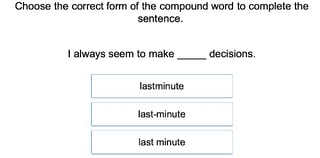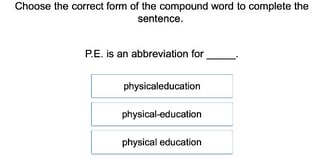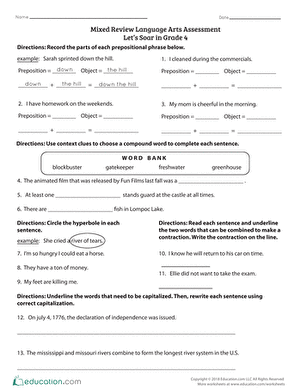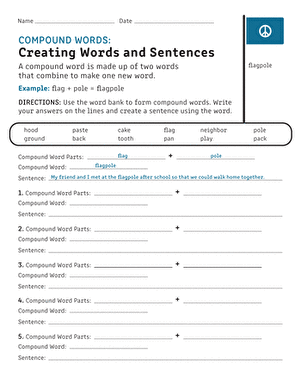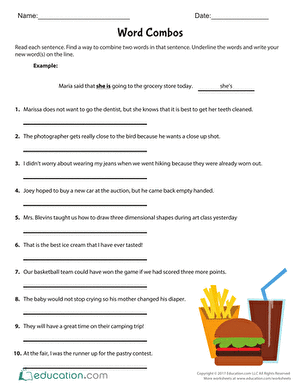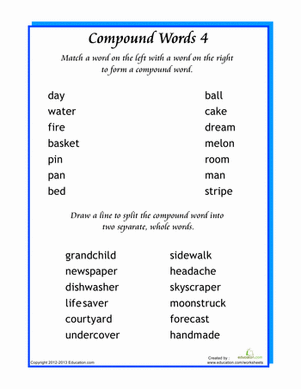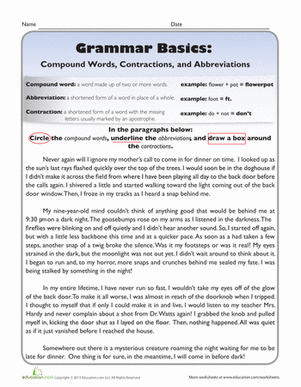Compound Words Resources
87 results
English Language Arts
✕Sort by:
87 results
Sort by:
Compound Words Resources
There are three groups of compound words: hyphenated, closed, and open. Closed compound words do not have a hyphen, but still merge two words together to make a new word. Open compound words remain two separate words, but still create a new meaning.
Students can use Education.com worksheets to get creative, and add many compound words to their vocabulary, whether closed, hyphenated, or open.
Students can use Education.com worksheets to get creative, and add many compound words to their vocabulary, whether closed, hyphenated, or open.
Learn More About Compound Words
Because students get excited about tapping into their knowledge, you’ll find them eager to create compound words. There are three types of compound words.
At first, open compound words may be simplest for students. Open compound words have separate and distinct words that carry a new meaning. The following are examples of open compound words:
One classroom activity idea is to have students call out different words, which the teacher writes on the board. Once 15-20 words are on the board, students can take turns trying to put them together to form compound words.
For effective independent work, have students play with the Education.com worksheets and activities above to grow comfortable with compound words.
At first, open compound words may be simplest for students. Open compound words have separate and distinct words that carry a new meaning. The following are examples of open compound words:
- School bus
- Car wash
- French fries
- Ice cream
- Father-in-law
- Left-handed
- Long-term
- Life-size
- Firefly
- Newspaper
- Sailboat
- Watermelon
One classroom activity idea is to have students call out different words, which the teacher writes on the board. Once 15-20 words are on the board, students can take turns trying to put them together to form compound words.
For effective independent work, have students play with the Education.com worksheets and activities above to grow comfortable with compound words.








